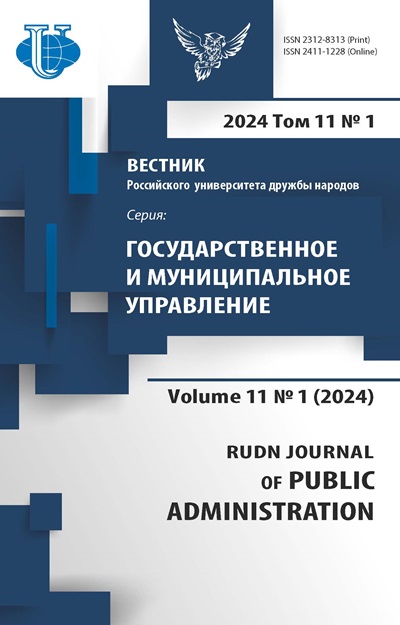Features of management teams in public service bodies
- Authors: Dolgov M.V.1
-
Affiliations:
- Russian Academy of National Economy and Public Administration
- Issue: Vol 5, No 4 (2018)
- Pages: 365-373
- Section: HUMAN RESOURCES MANAGEMENT IN PUBLIC ADMINISTRATION
- URL: https://journals.rudn.ru/public-administration/article/view/21248
- DOI: https://doi.org/10.22363/2312-8313-2018-5-4-365-373
Cite item
Full Text
Abstract
The modern period of reforming the public service, increasing its efficiency, effectiveness, usefulness of activities is full of events, innovations, and social experiments. In recent years the main vector of changes is aimed at the introduction of modern management tools in the public service. National and regional competitions for the selection of personnel reserve are held, social lift programs are implemented, project management elements and management tools for key performance indicators are introduced. The article considers an important component, which is the basis of organizational changes in the public service. The formation and development of management teams at all levels of public service is a fundamental task for the development of a culture of modern management and quality change. Among the positive results of the transformation of the public service there can be called the emergence of “Islands” of the reformers, who make attempts to change the structure of the public service, the culture of which evolved for decades and in many ways is still a legacy of the last century. One of the most urgent tasks of the current period is the need to move to team leadership at all levels of the public service. The author substantiates the conclusion about the need for the development of management teams and the formation of the team leadership culture. On the basis of the conducted research, the systemic actions for the public service management team development are proposed.
Keywords
About the authors
M. V. Dolgov
Russian Academy of National Economy and Public Administration
Author for correspondence.
Email: mdolgov.official@gmail.com
-
References
- Dolgov M. Model “5F” - Geometriya komandy, sozdaushchaya energiyu. Kratkoe rukovodstvo k dejstviyu dlya liderov. Moskva, 2016. 192 s.
- Nikonova S.A. Formirovaniye I razvitiye upravlencheskih komand na predpriyatiyah: avtoreferat dis. … kandidata economicheskih nauk: 08.00.05. Moskva, 2003. 28 s.
- Kulikov V.G. Effektivnaya komanda menedzhera / V.G. Kulikov, S.D. Reznik. Rostov n/D: Feniks, 2005. 228 s.
- Miheev V.N. Sovremennaya komanda menedzhmenta. URL: https://iteam.ru/publications/ project/section_37/article_383 (data obrashcheniya: 07.06.2018).
- Bazarov T.Yu. Upravlencheskiye komandy I ih formirovaniye / T.Yu. Bazarov, I.V. Rybkin, T.S. Pyrkova // Pod redaktsiye T.Yu. Bazarova. Moskva, IPK gossluzhby, 2009. 51 s.
- Sheburakov I.B. Klyucheviye personal-tehnologii v sisteme upravleniya personalom, orientirovannoy na rezul’tat // Aktual’niye voprosy upravleniya personalom. SPb, Severo-zapadnaya akademiya gossluzhby, 2008.
- Sheburakov I.B. Formirovaniye proektnykh komand v gosudarstvennykh organakh // Upravleniye razvitiem personala. № 1 (49), 2017. S. 16-24.
- Kornienko V.I. Formirovaniye upravlencheskikh komand novogo pokoleniya. M.: RAGS. 2000. 150 s.
- Gurkov I.B. Strategiya i struktura korporatsii. Glavnaya. Menedzhment, upravleniye proizvodstvom. Ucheb.posobiye. M.: Delo, 2006. 320 s.
















